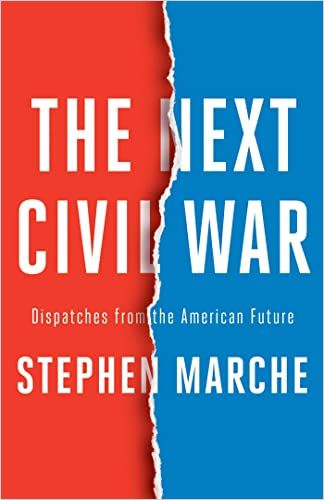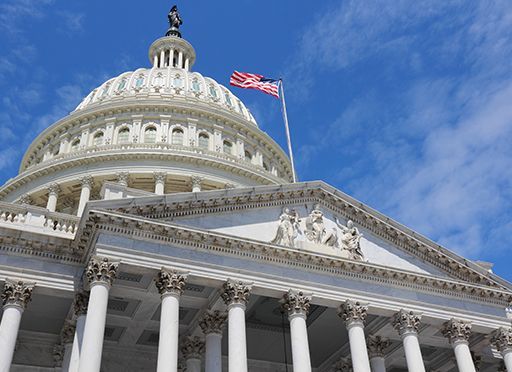Prolific author Stephen Marche provides a frightening overview of the possible unraveling of American society.

The End of the Experiment
America has gone from being a global leader to a polarized, divisive and paralyzed nation, and it might well descend into civil war, says prolific novelist, essayist and Esquire editor Stephen Marche in this chilling work of nonfiction. Though he bases his writing on detailed research, Marche constructs scenes of America’s possible future with a novelist’s narrative drive, offering readers a chilling hypothetical portrait of the downfall of a divided nation.
Insurrection
After Joe Biden defeated Donald Trump in the 2020 US presidential election, calls arose for violent resistance. But Marche explains that extreme antigovernment rhetoric has spurred the American right toward armed domestic conflict – a civil war – since Barack Obama’s 2008 election.
The intensity of the violent rhetoric may have been new; the message wasn’t.Stephen Marche
Rising inequality, climate change, distrust of institutional legitimacy and outrage: Trump is a symptom, not a cause. Marche notes that American antigovernment resistance has grown more virulent. Division and polarization link the forces shaping elections, which are the media, the internet and social media platforms.
Every study of virality since the origin of social media has shown that, after the experience of awe, moral outrage is the strongest driver of traffic.Stephen Marche
The anonymity of the computer screen and the internet stoke rage and fury, as social media networks create divisiveness, feed on anger and generate more.
The Police and Military
The radical right encompasses terrorists, including gun fanatics, neo-Nazis, and white supremacists and white nationalists. Adherents populate police forces and the military.
Rather than following one coherent ideology, or series of ideologies, the hard right offers a buffet of sensibilities.Stephen Marche
The FBI, for example, will not place white supremacist suspects on terrorism watch lists accessible to police, lest that enable contact between cops and violent racists. A 2019 report revealed 36% of active troops embraced racist beliefs.
Random Terror
Marche asserts that individuals, not organizations, carry out domestic terrorism and acts of political violence.
Stochastic terrorism is a matter of an indistinct loathing, of which America has plenty. The general climate of anger and recrimination condenses into murder.Stephen Marche
Increasingly, ideological identities track with racial differences. As the Republican Party became whiter and fomented racial resentment, the Democratic Party became more inclusive and multicultural. Tribalism came to permeate American society.
Threat Multipliers
Inequality, climate change and property vulnerability will shape American lives. Inequality will fuel polarization, partisanship and anger. Climate change will decimate agriculture – particularly corn, rice, soybeans and wheat. Higher temperatures will bring drought. Because the United States is the planet’s top food exporter, reduced agricultural reliability will affect stability worldwide. Rising sea levels will cause an estimated $1 trillion in property damages.
A Massive Terrorist Attack
Americans will see it on their news feeds on their phones, on monitors in bars and restaurants, and on the streets: The US Capitol is under attack and on fire – from Americans! March believes that if an antigovernment fanatic bombed the Capitol, Americans’ self-perceptions would change. The January 6, 2021, riots proved a prelude, as nearly half of Republicans now support the insurrection.
America is one spectacular act of political violence away from a national crisis.Stephen Marche
If domestic terrorists launch attacks against national symbols such as the Capitol, the response would be severe, violent and vengeful. Countries are vulnerable to coups during periods of social unrest, antigovernment activism and economic instability. Nations that are in transition from one government to another – from Democratic to Republican leadership, for example – are also susceptible. But a military coup is unlikely: America’s never had one, and the military seems staunchly behind the Constitution.
A hard coup in the United States – tanks rolling up Pennsylvania Avenue to impose military control over the country – is unlikely. Stephan Marche
Military coups are less necessary today. A president can be impeached or indicted. Neither Turkey’s Recep Tayyip Erdogan nor Vladimir Putin put tanks on the streets. They amassed power by exploiting constitutional procedures.
Secession
The United States as a republic appears to be unraveling. Political parties are proving incapable of compromise. The government seems unable to exercise its functions. The US Constitution appears less applicable to today’s complexities, but the Founders never dreamed their Constitution would last forever. Thomas Jefferson, for example, envisioned updates to the Constitution every generation.
One possible conclusion is violence. The other is civilized separation. At this point, disunion is among the best-case scenarios for the United States.Stephen Marche
For America, secession might simply reflect the truth that the nation can no longer function as a single, unified country. Yet separating the United States would prove a legal, logistical nightmare: Consider pensions, passports, the national debt and the military. How would citizens establish new territories?
Hope
After convincing you there is no alternative to his doom scenario, Marche nonetheless insists that Americans can modernize electoral systems, reform police forces, track domestic terrorists, mitigate inequalities, and make cities and agriculture more resilient to climate change.
The situation is clear: The system is broken. Once again, as before, the hope for America is Americans.Stephen Marche
Americans need to acknowledge their political and institutional problems, set aside reverence for a Constitution fit only for ghosts, and create new governing policies.
Chilling
Marche doesn’t really seem to believe this is possible. With a novelist’s vividness and a foreigner’s unsentimental eye, he regards America as catastrophe on the brink of happening. His holistic view proves terrifyingly credible, as do his more dramatic scenarios for the unraveling of US society.
And, of course, those likely to read Marche’s words and grant them authority are exactly the citizens most at risk from armed white supremacists, racists and neo-Nazis. The latter will not be enlightened by Marche’s recommendations, and perhaps neither will you: The author’s final, supposedly uplifting, chapter does not ring nearly as true as his detailed forecasts of societal collapse, insurrection, national violence and secession. Maybe his editors forced him to add a cheery coda.
The main problem is that Marche can really write, and he does so with a righteousness and empathy that makes him all the more convincing. Reading his forecast may lead to you to ponder how non-Americans will respond if his prophecies of doom prove true. Will they settle into their ringside seats and savor the end?
Stephen Marche is also the author of The Hunger of the Wolf, The Unmade Bed, Shining at the Bottom of the Sea and How Shakespeare Changed Everything.






